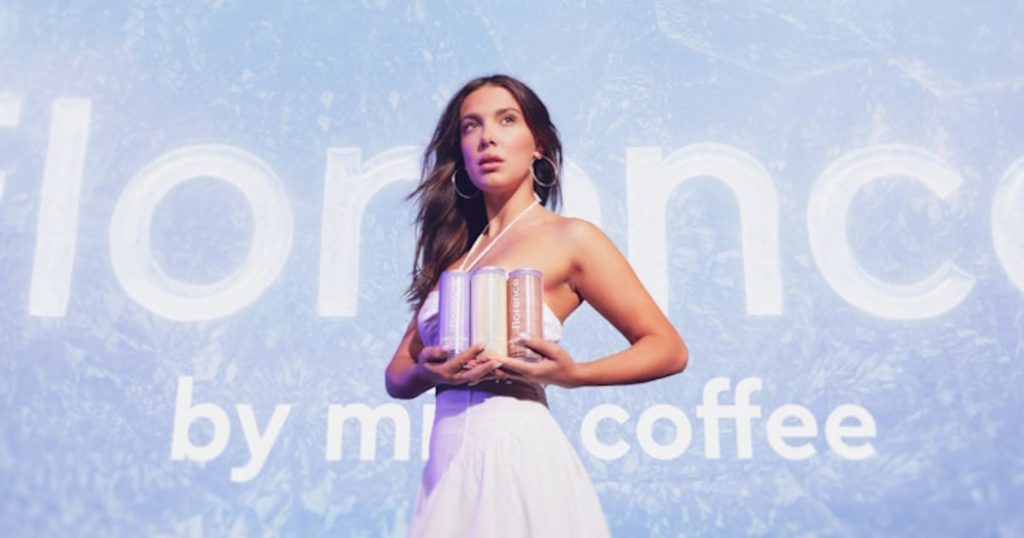The Rise of Direct-to-Consumer Coffee Brands: Florence by Mills Coffee
In a landscape traditionally dominated by supermarkets and distributors, a new model is transforming the beverage industry: Direct-to-Consumer (DTC) sales. This innovative approach allows brands to bypass conventional retail channels, connecting directly with consumers online. Leading the charge is Florence by Mills Coffee, a unique coffee brand co-founded by actress Millie Bobby Brown, targeting the vibrant Gen Z market.
What is Direct-to-Consumer (DTC)?
Direct-to-Consumer (DTC) sales are gaining traction as startups focus on a digital-first approach to reach their audiences. This method reduces reliance on intermediaries, allowing brands to retain larger profit margins. Without traditional retailer markups, companies can either enhance their profitability or pass savings directly to their consumers. However, the potential benefits of DTC extend beyond financial margins.
The Power of the DTC Model
Danny Wright, Founder & CEO of COLLAB, emphasizes that DTC operations are about more than just sales. “The DTC channel is more than just a point of sale; it’s a space for shared values, rituals, and self-expression,” he explained in a conversation with BeverageDaily. This sentiment reflects the increasing importance of creating a holistic customer experience.
Florence by Mills Coffee exemplifies this vision by not only launching coffee products but also fostering a community around them. Their recent offerings, such as Super Coffee Concentrates and Ready-to-Drink Iced Lattes, provide convenience and customization, reflecting the desires of a new generation of coffee drinkers.
A Unique Brand Experience
The official Florence by Mills website goes beyond being an e-commerce platform. It serves as an educational hub featuring videos, recipes, and behind-the-scenes content. This multifaceted approach demystifies various coffee formats, especially for young consumers unfamiliar with concepts like coffee concentrates.
However, DTC brands face unique challenges. Without the visibility of store shelves, they must create compelling narratives to capture attention. Millie Bobby Brown’s authentic connection to iced lattes—a daily ritual during her long hours on the set of "Stranger Things"—has effectively contributed to the storytelling aspect of the brand. Her spontaneous TikTok videos have garnered millions of views, significantly boosting interest in coffee-related products online.
“Authenticity is everything to today’s audiences,” according to Wright. “Millie genuinely enjoys exploring new coffee formats, which builds real trust.”
Learning from Success Stories: The Power of DTC
Florence by Mills Coffee represents the next generation of DTC brands, similar to successful ventures like Poppi, a prebiotic soda brand that harnessed DTC-first storytelling. Poppi’s approach led to a monumental $1.95 billion acquisition by PepsiCo, illustrating the transformative power of direct, digital-first branding.
Navigating the Challenges of DTC
Despite its advantages, the DTC route comes with its own set of hurdles. Notably, beverage brands must contend with logistical complexities. Shipping liquids incurs higher costs and is more complicated than shipping non-perishables. Brands like Florence by Mills Coffee must master warehousing, fulfillment, and last-mile delivery—elements traditionally handled by retailers.
Additionally, the alcohol sector faces even more obstacles, including stringent regulatory requirements. DTC alcohol sales necessitate careful age verification, compliant shipping arrangements, and a state-by-state distribution model in the United States. Nevertheless, consumer demand for direct purchasing is robust. A 2024 report from Sovos ShipCompliant reveals that 85% of U.S. consumers desire the ability to buy alcohol directly from producers.
The Importance of Marketing in DTC
To succeed, DTC brands must invest heavily in marketing. Without foot traffic, brand discovery largely relies on paid advertisements, organic social media, and influencer partnerships. Developing a comprehensive understanding of customer journeys and creating resonating social media strategies becomes vital.
When executed effectively, DTC can yield significant rewards. It allows brands to access rich streams of first-party data that traditional retail methods cannot provide. For Florence by Mills Coffee, utilizing this data is crucial for product development and marketing personalization.
Wright asserts the importance of leveraging insights gained from consumer interactions, stating, “Understanding what sparks engagement helps us build an authentic community and adapt quickly in a competitive space.”
Engaging Generation Z and Beyond
Florence by Mills Coffee primarily targets Gen Z, incorporating playful packaging and customizable formats. However, the brand recognizes the evolving landscape of consumer engagement. As Danny Wright notes, “Platforms like Instagram and TikTok have become multigenerational spaces where people of all ages discover new products.”
As Gen Z’s interest in coffee formats like ready-to-drink iced lattes grows, their influence often piques the curiosity of Millennials and even Gen X consumers. This interconnectedness is a testament to the potential longevity of brands that can forge genuine connections.
Hybrid Strategies for Lasting Success
While DTC is a powerful tool, very few beverage brands depend exclusively on this model. Many incorporate hybrid strategies that blend DTC and traditional retail channels. For Florence by Mills Coffee, digital platforms are instrumental for initial launches and community engagement, but traditional retail remains a significant part of their long-term strategy.
Conclusion
The emergence of brands like Florence by Mills Coffee illustrates a broader shift in the beverage sector towards DTC models. As these brands continue to innovate and engage with consumers authentically, they will likely redefine the traditional pathways to market and reshape consumer expectations in the industry.
The transition to DTC not only signifies profitability but also emphasizes the role of storytelling and community in today’s marketplace. Whether you’re a coffee aficionado or simply curious about this evolving trend, the intersection of celebrity culture and direct consumer engagement is proving to be a recipe for success.
For more insight into the evolving beverage landscape, consider exploring resources like Sovos ShipCompliant or local news outlets to stay updated on emerging trends and consumer preferences.





